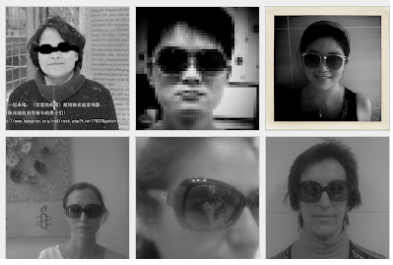Online Life in China: 我们都在织微波吗?

Last week, our team was able to attend the Personal Democracy Forum (PDF). One of my favorite panels was "Online Life in China". In case you didn't know, sometimes content posted online in China is filtered and removed, which can have obvious impacts on how Chinese internet users can express themselves and access information online.
David Wertime from Tea Leaf Nation, a popular blog that follows social media trends in China, made some important distinctions in use of local social media platforms in China. While many people refer to Sina Weibo (one of the largest microblogging platforms in China) as "China's Twitter", there are some key distinctions that make the comparison not quite balanced. While in Roman-based languages, 140 characters is quite limiting in what you can express. Whereas in Chinese, 140 characters is literally 140 words, allowing Chinese speakers to express longer sentiments. (Fact: "Weibo" or 微博 in Chinese literally means "Microblog", based off of "Boke" or 博客 which means "Blog"). In addition, while Sina Weibo does have many similar functions to Twitter (hashtags, retweets, etc.), one can also embed video and image files directly into tweets, and can "comment" on tweets as well. This comment capability is what enables Weibo to be "the closest thing China has to a platform for free speech" and is a strong democratizing feature.
An Xiao Mina, an expert in social media use in China, described the impact of internet memes on platforms like Weibo. She stated that Internet memes are the street art of the censored web, and cited a number of actions that Chinese netizens have taken to make information available and express dissent using clever imagery. My personal favorite was a mashup of extravagant fashion worn by CCP officials during Beijing's fashion week and comparing the cost of those items to their public salaries (you can find out more about the meme here, but spoiler alert: many of the luxury goods worn should be out of the realm of possibility of ownership for these officials are not). One challenge that An Xiao Mina raised is that it is extremely difficult to get quantitative data on memes in China, given that the social media APIs in China are tightly controlled and that content can *ahem* disappear.
Jessica Beinecke, from OMG! 美语 (Meiyu), talked about how her work at VOA in teaching colloquial American English to Chinese speakers has bridged collaboration among fans of the program from the online realm to the offline realm. The origins of this program was a monthly TV broadcast, taking users to a particular US city and teaching them how to say words like "Gumbo" in Chinese. Recognizing that this approach was not reaching a broader and younger audience, Jessica began filming brief lessons and posted them on both Chinese and Western social media, and have become immensely popular. Fans of the show have had offline meetups, or "tweetups", and other fans have even built mobile apps to aggregate the program's content to fans can access it on the go.
Michael Anti, a prominent Chinese journalist, discussed how online discourse is controlled in China. With local platforms more widely available than global alternatives, it's no surprise that Chinese internet users would rely on them, which is a key component of control of content online in China. As Anti states, "If all the servers are in Beijing, then they can control all the data." While Anti has first-hand experience with the challenge of server location and data seizure, he acknowledges that this isn't the only challenge to online life in China. Users often engage in self-censorship, and that once users censor themselves, it becomes difficult to stop. In fact, following the events of the "Arab Spring", any dialogue that indicates a call for mass action becomes a target for censorship (a point raised by Wertime). Anti explains that actions like keyword filtering even impacted common words like "meet". Though this "cat-and-mouse" game has been ongoing for more than 3 years, Anti believes that there are no clear winners and losers.
Despite the obvious challenges that internet censorship can have on a society, these panelists have detailed opportunities for ways that internet users in China leverage openings when they appear. At NDI, this is a growing challenge that we address in our programs. In more closed environments, understanding popular tools and programs is a must to see what is achievable, and how available tools can be used in clever ways. We'll be keeping an eye out on how Chinese netizens can continue to creatively use Weibo for civic action.
